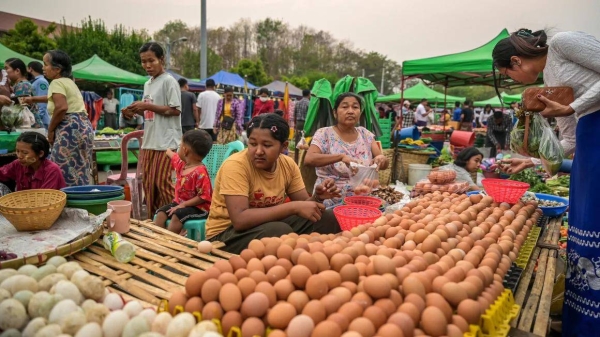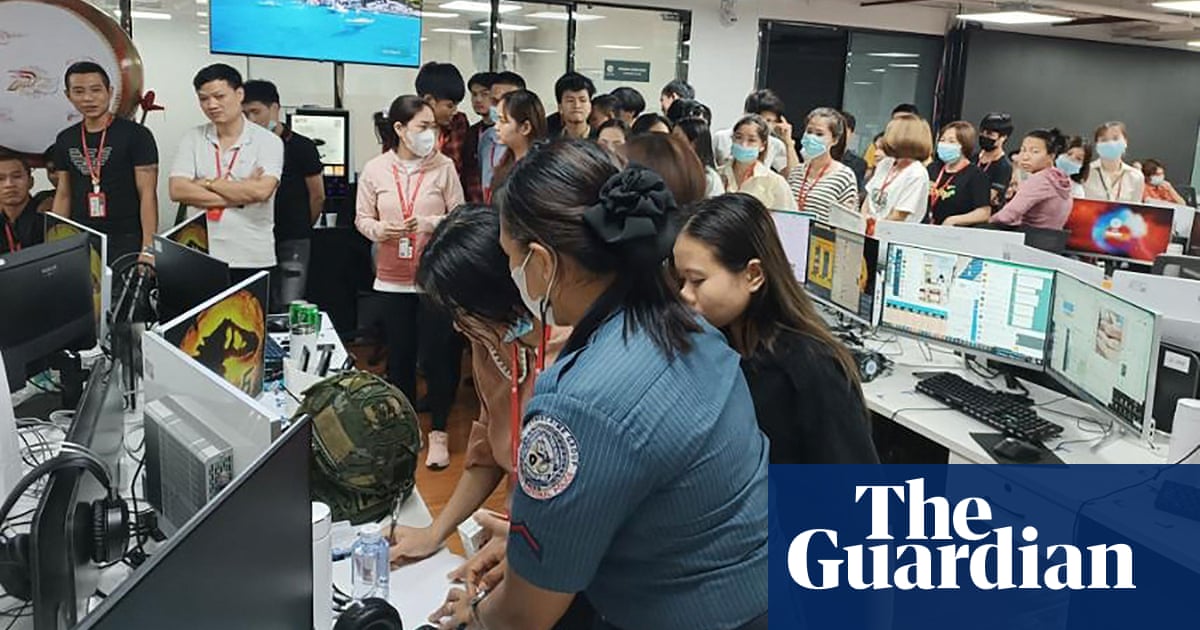
Dec 1 (Reuters) - Urban poverty is on course to triple in Myanmar, pushing nearly half the population below the poverty line next year, the United Nations said on Wednesday, as the twin impact of the pandemic and a military coup threaten progress made in the past decade.
The army seized power from the elected civilian government of Nobel peace laureate Aung San Suu Kyi on Feb. 1, unleashing political and economic turmoil as it sought to crush opposition and hurting efforts to fight the coronavirus.
Based on a survey of 1,200 households, the U.N. Development Program (UNDP) said Myanmar was set to return to levels of deprivation not seen since 2005, before democratic reforms began.
"A slide into poverty of this scale could mean the disappearance of the middle class – a bad omen for any rapid recovery from the crisis," Kanni Wignaraja, the director of the UNDP bureau for Asia and the Pacific, said in a statement.
A spokesman for the military junta did not respond to requests for comment by Reuters.
In the worst-case scenario, the United Nations estimates the numbers of those living below the poverty line could double to 46.3% from 24.8%, while urban poverty is expected to triple by 2022 to stand at 37.2%, versus 11.3% in 2019.
Half of survey respondents in urban areas said they had no savings left, while about a third reported having sold a motorbike, often a family’s main means of transport.
There was a "clear rising trend of households eating less food" and increasing high school drop-out rates.
Major cities such as Yangon and Mandalay, formerly home to a growing middle class, have seen disruptions to small businesses and sectors, from construction and hospitality to retail and textiles, bringing job losses and reduced wages, the UNDP said.
In October, the junta’s investment minister told Reuters military authorities were trying their best to revive the economy, and blamed foreign-backed "economic sabotage" for the crisis, but gave no details.
If no action was taken, "you"re going to see this carried through an entire generation," the U.N. official, Kanni Wignaraja, added.
"You lose a generation not only due to war, you lose a generation because of impairments and disabilities that come from a lack of food, poor nutrition, just extreme poverty," she told Reuters.
The World Bank, which before the coup projected economic growth in Myanmar despite COVID-19, now forecasts the economy to contract by more than 18% this year, far outstripping its neighbours.
Myanmar"s campaign against the disease foundered along with the rest of the health system after the military overthrew the elected government, which had stepped up testing, quarantine and treatment.
Services at public hospitals collapsed after many doctors and nurses joined strikes in a civil disobedience movement at the forefront of opposition to military rule and sometimes on the frontline of protests that were quashed.
More than 1,200 people have been killed by junta troops, says a monitoring group, the Assistance Association for Political Prisoners, and the protests have grown into an armed uprising, bringing clashes countrywide.












